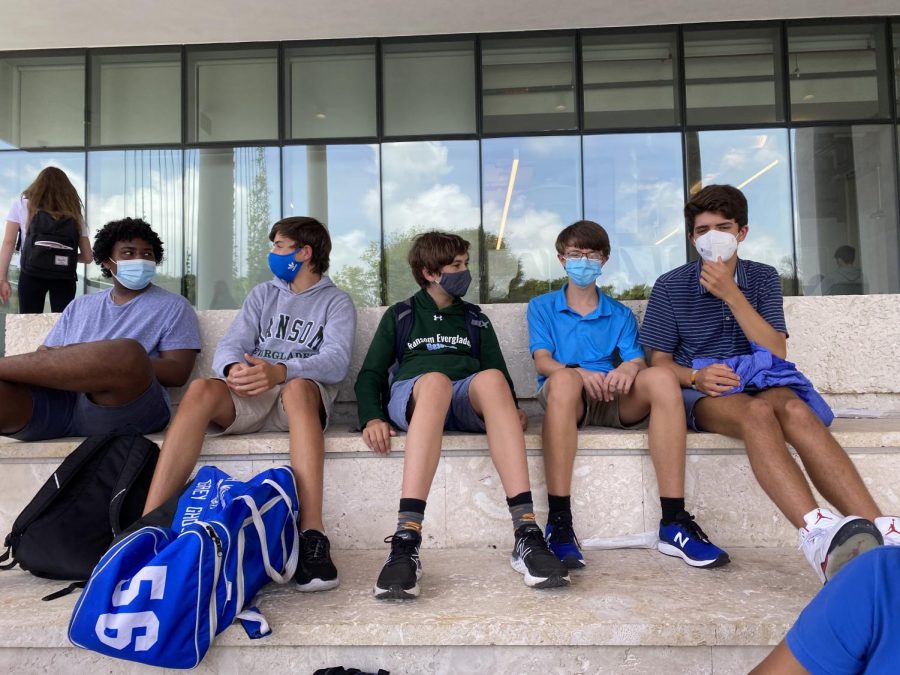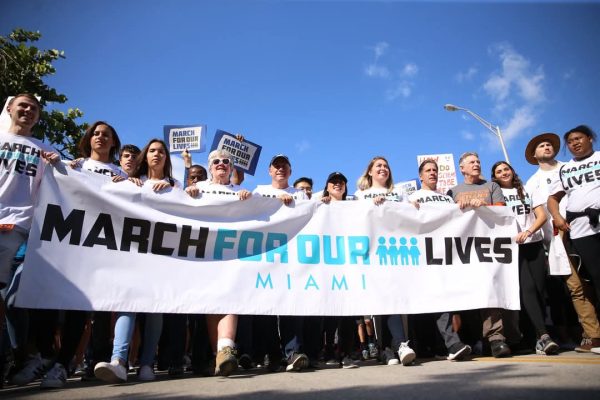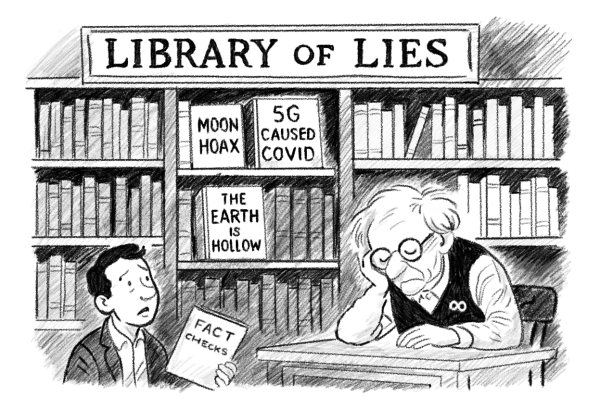Being a freshman is hard. COVID didn’t help.
Talk about being a freshman! The transition from middle school to high school is traditionally a nerve-wracking and difficult experience. The global pandemic made it all the more difficult for incoming first-year students to be involved in the RE Upper School community. Inevitably, the freshman class of 2024 has been robbed of a conventional first-year experience.
Ms. Kate Bloomfield, a freshman advisor, said the biggest challenge for freshman this year was “starting the year remotely, particularly for the new students.” Many freshman initially missed out on in-person opportunities to forge connections with one another and collaborate, as well as the direct academic and emotional support they could get from teachers. “I truly believe that face-to-face contact is much better than remote learning. Seeing someone in person makes a huge difference. There is something missing when classes are fully remote,” Ms. Bloomfield said.
Additionally, incoming freshmen struggled to form bonds with new people and upperclassmen. Many students believe one of the most challenging parts of joining high school from middle school is the significant difference in both places’ dynamics. Classes in middle school tend to be grade-specific; classes at the Upper School are often grade-mixed, as are activities. These groups can offer freshmen new friendships they might not have considered before—but they can be hard, at first, to build, especially over remote platforms.
“It has been weird trying to learn and meet new people during this time,” said freshman Scarlett Sable ‘24. “When you get to high school, you want to get to know the other grades, which is hard since everyone wants to know them but cannot see them.” Not having upperclassmen in your corner, Sable said, made it “challenging to have to know and navigate a new environment halfway through the year when everyone else is settled.”
When Paisley Verea ‘22 was a freshman, she and Grace Arriola ‘21 became best friends thanks to track and field. “Sports were an amazing way to interact with other grades,” Verea said. “Grace gave me pointers and made a constant effort to help me succeed and also have a friend.” This highlights how fundamental it is for freshmen to interact with other grades and forge friendships with them, whether through classes, clubs, or extra-curricular activities.
This year, however, many feel that there has been a disconnect between freshmen and upperclassmen—which affects upperclassmen, too, since engaging with freshmen or even helping them acclimate is an important part of their high school experience.
“My sister is a freshman, so I always looked forward to spending my last year on campus with her,” said Elliot Sable ‘21, Scarlett’s older brother. “I thought we would be able to interact more, get to know her friends better, or maybe even eat lunch together every now and then; but given the circumstances this has not been the case.”
One organization in the RE community that connects upperclassmen with freshman is HIP, since peer health educators are in charge of delivering the curriculum to ninth graders. Although HIP still ran this year, not being able to present modules in person weakened the connection between the PHEs and freshman. HIP deals with sensitive topics, and a face to face experience helps students feel more confrontable sharing, engaging, and answering questions. Online, students felt less obligated to answer and were usually looking down at their phone screens.
Forming bonds is not the only thing freshman struggled with in a COVID–filled year. Students worked to get accustomed to the new normal, but many struggled to adapt and perform successfully in school. There is always a culture shock when students shift from middle school, where teachers tend to play a more hands-on role, to the more demanding, independent environment at the Upper School, where more is expected. This year, the shift was particularly hard to navigate.
Freshman Eliza Arnold ‘24 noted that the mix of online school and a heavier workload proved to be challenging, “ The hardest part was definitely having the first few months of high school being online. Between not getting to see and meet people and having every day be almost the same, I lacked a lot of motivation, and it showed in my grades.”
It is clear that additional resources were needed to ensure students, specifically the freshmen, were engaged and cared for in their first-year experience. According to freshman advisor Dr. Rhyner, although the administration has put the effort into easing the transition for freshmen, there are still some things the school can provide freshmen to ensure a good first-year experience, including “a big brother / big sister mentor program and some special treats or a letter-writing project where both seniors and freshmen are encouraged to get involved.”
Freshmen also spoke out on ways the school could help restore traditions or experiences that COVID took away. “I think the school can make sure they re-schedule events strictly for freshman that we missed out on, like Outward Bound, at a later time when it is safe.”
It is fundamental that the Ransom Everglades administration recognize how difficult it has been for this year’s freshmen to adjust. School is not just a place for students to ingest educational material; it is a place where young people grow socially, physically, and mentally. Even when changes must be made to the way students learn, the school must provide alternative platforms for freshmen to connect socially and grow in other parts of their lives. Freshmen need to feel supported and seen in light of so much chaos.






